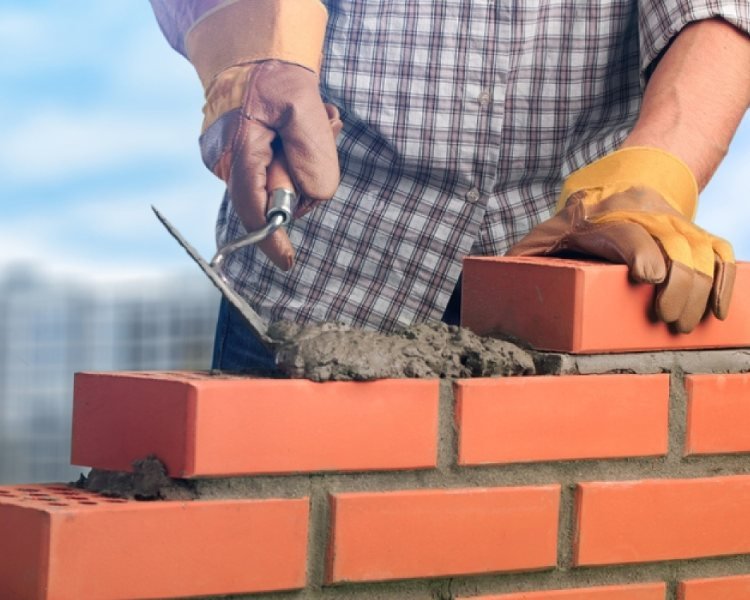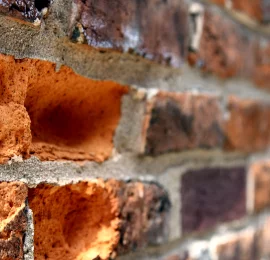Unlocking the Secrets of Lasting Masonry Building Practices for Eco-Friendly Structures
Amongst the myriad techniques to environmentally friendly structure, sustainable masonry building stands out as a time-tested and long lasting method that holds a wide range of untapped potential. From the selection of products to innovative building strategies, the secrets to accomplishing sustainability within masonry building are diverse and intriguing.
Advantages of Sustainable Stonework Construction
Embracing lasting stonework building practices not just lowers ecological impact but additionally provides long-term financial benefits to contractors and areas. By utilizing products like recycled bricks, obstructs, and stones, builders can substantially reduce the carbon impact of their projects while promoting source effectiveness. Furthermore, lasting stonework building and construction methods, such as proper insulation and thermal mass residential properties, can improve power effectiveness within structures, resulting in minimized functional prices in time.
In addition, the resilience and strength of masonry frameworks add to long-term financial benefits. Structures created making use of sustainable stonework practices often call for less upkeep and fixing, translating to cost savings for contractors and homeowner. The longevity of stonework materials also ensures that frameworks stay stable and safe and secure, minimizing the demand for constant remodellings or substitutes.
Eco-Friendly Masonry Materials
Utilizing green stonework products is a critical step towards improving the sustainability of building and construction techniques and lessening environmental influence while maximizing lasting economic benefits. Sustainable masonry materials are sourced, generated, and made use of in a manner that lowers overall environmental impact. Lasting concrete blocks incorporate recycled accumulations and might feature better insulation buildings, contributing to power effectiveness in buildings.
In addition, all-natural materials like adobe, rammed earth, and straw bales supply superb thermal mass residential or commercial properties, reducing the demand for heating and cooling power. These materials are often locally offered, advertising local economic situations and lowering transportation-related carbon exhausts. By picking eco-friendly stonework products, building and construction tasks can considerably decrease their environmental impact and add to the development of much healthier, more lasting constructed settings.
Energy-Efficient Masonry Strategies
Energy effectiveness plays an essential role in enhancing the sustainability of stonework construction techniques. By implementing energy-efficient stonework strategies, building contractors can significantly reduce the total energy usage of a structure, causing lower functional costs and a smaller sized ecological impact. One key energy-efficient masonry strategy is the use of thermal mass, which entails including thick products like concrete or brick right into the building's framework to soak up and save heat. This aids control indoor temperature levels, decreasing the demand for mechanical home heating and cooling down systems.

Technologies in Sustainable Masonry
Recent improvements in sustainable masonry methods have brought about innovative methods that are improving the building and construction sector. One such advancement is the growth of self-healing official website concrete, which utilizes microorganisms embedded within the concrete to heal cracks autonomously. This advancement not just lowers upkeep prices but additionally enhances the toughness of stonework structures, contributing to their sustainability.
One more remarkable innovation is using recycled aggregates in masonry building - masonry contractor. By incorporating products such as smashed ceramic waste or recycled glass right into concrete blends, building contractors can lower the ecological effect of construction tasks while preserving structural integrity. This practice not only draws away waste from land fills but additionally saves natural deposits, making it an essential improvement in sustainable stonework construction
In addition, the assimilation of digital style devices, such as Building Information Modeling (BIM), is changing the way stonework frameworks are planned and built. BIM enables for even more accurate calculations, lowered product wastage, and enhanced energy effectiveness, eventually resulting in more lasting structure practices. These innovations collectively indicate a promising future for sustainable stonework building and construction in the age of environment-friendly buildings.
Future Trends in Masonry Sustainability
With the ingenious strides made in sustainable masonry techniques, the future trends in stonework sustainability are poised to further revolutionize the construction sector. Among the essential patterns shaping the future of masonry sustainability is the boosted integration of innovation. Developments such as Building Information Modeling (BIM) and online fact simulations are being used to optimize masonry construction processes, resulting in decreased material waste and boosted energy efficiency in structures.
Additionally, the development of unique lasting materials is readied to play a significant duty in boosting the eco-friendliness of stonework construction. masonry contractor. Developments like self-healing concrete, recycled accumulations, and bio-based binders are gaining traction for their capability to decrease environmental impact while preserving architectural stability

Conclusion
In final thought, sustainable stonework construction practices use countless advantages for environmentally friendly buildings. masonry contractor. Advancements in lasting masonry are constantly being created to even link more boost the ecological efficiency of structures.